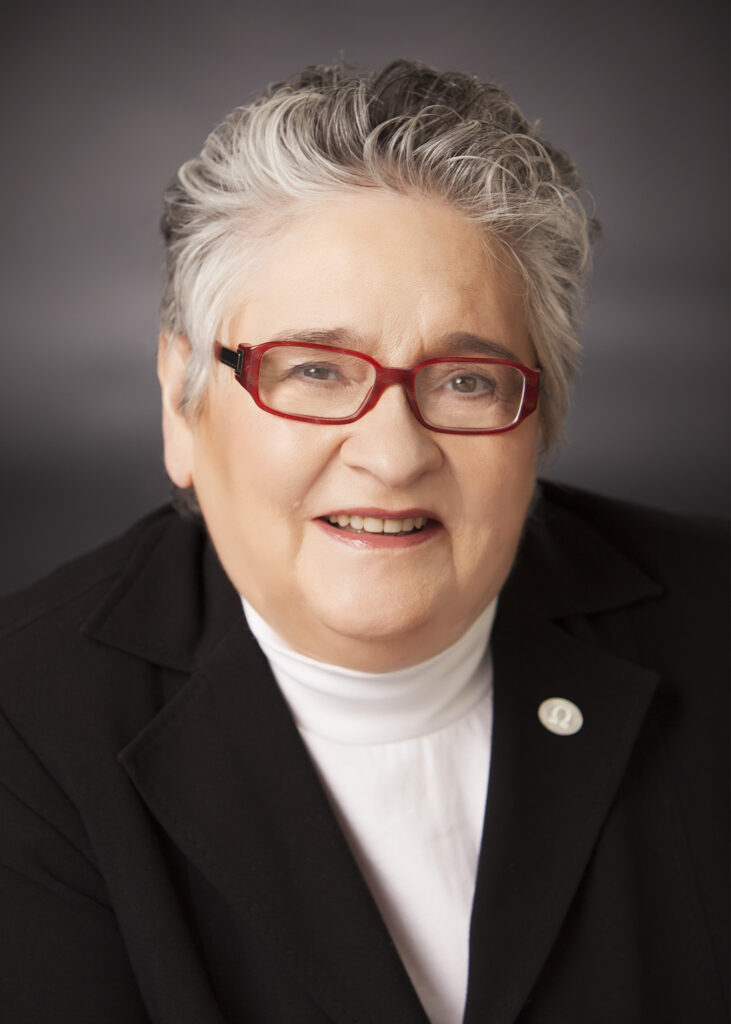[PODCAST] The Future of Giving: Donor Advised Funds (DAFs) – Greg Farrell and Mitch Stein
August 23, 2024The Perfect Campaign Cabinet Fundraising Chair – Charlotte Berry
August 27, 2024Growing a Healthy House of Worship w Linda Lysakowski

Growing a Healthy House of Worship w Linda Lysakowski is America’s Fundraiser take on how to build financial capacity at local church ministries. Here’s what she has to share:
I know it might be difficult for you, as clergy to think about the practical side of your ministries; after all, you have a calling to bring people to a relationship with God, Allah, or a higher power of some kind. However, every calling requires some involvement in those practical matters that enable your ministry to be fulfilled. So, let’s talk about how you can simplify the worldly stuff, so you can focus on your higher calling.
Growing a Healthy House of Worship w Linda Lysakowski
Budgeting
You probably have a business manager, a finance council, or a vestry, to handle the budgeting. If not, we suggest you think about hiring someone to handle the details of budgeting, with your input of course. Most houses of worship have a full-time or part-time business manager, but a volunteer finance council or committee can also help. This volunteer group should be comprised of people with a finance background—bankers, corporate CFOs, accountants, etc. Resist the urge to appoint someone to your finance council just because they are a faithful long-term member. However, these members need to understand that your place of worship or ministry is a nonprofit and will have different needs than a business will have. Your institution is going to cost money to operate. Some typical sources of expenses will be staffing (usually the largest expense); costs of operating your facility—mortgage or rent, utilities, maintenance, etc.; program expenses—how much does it cost to operate your programs. In a church, temple, or synagogue this may include things like vestments, music ministry, teaching ministries, and outreach ministries. Depending on the structure of your place of worship, there may be dues that must be paid to a Diocese, Synod, Presbytery, etc. You should also include things like technology and marketing expenses (your website maintenance for example). People tend to give to programs before they support maintenance and building expenses, even though most people understand that you need staff and facilities to run your programs.
Planning
To develop a budget, which will be used when you present your case to members and prospective members, you first need to engage in a planning process. Before you let out a groan of despair at the thought of planning, please know you are not alone in your dread of the planning process, and you don’t need to be alone in the process. If you have a board of directors, a parish council, or some other team of volunteers, they will be the primary people involved in planning, under your direction. You may want to involve someone from the outside to guide this planning process, to make sure it is moving in the right direction. This is all part of organizational development, the basis for any successful fundraising program.
In your planning process, you must include your annual fundraising needs—the things I mentioned above under your annual budget. But a good planning process revolves around your mission and vision. What capital needs might you have—a new building, vehicles, major repairs, etc. And don’t forget endowment needs—what needs and contingencies you should plan for—future program, staffing, capital needs. This will help you make the case for bequests and other planned gifts.
When doing your organizational development, as mentioned above, it is usually best that you have an independent outside party guide this process to ensure that everyone involved in the planning process represent your entire membership and is given equal opportunity to express their thoughts, to make sure that your plan includes realistic goals and objectives, and that you have action steps to complete these goals including areas of responsibility, budgets, and timelines. Your plan will be important to developing a compelling case for support.
Infrastructure
One important step in fundraising is the infrastructure necessary to track your fundraising efforts. The first item in this list is your software system that allows you to track members’ donations, the date, amount, and other information about their past gifts; and send acknowledgment letters and reminders of pledges that might have been made. If you are part of a system, perhaps your parent organization may have a system that each place of worship uses. You may want to talk to other institutions about what system they are using. And most companies will give you a free demo of their products.
Other items included in infrastructure are policies and procedures that cover things like what kind of gifts you will accept, from whom you will accept gifts, how gifts are recorded, and how gifts will be acknowledged and recognized. You can find a lot of samples in the Major Gifts Ramp-Up Cloud.
It is also important to abide by a code of ethics about how you will use the money contributed to your organization. Your code of ethics might also include a commitment to diversity, inclusion, and equity. Churches are typically required to get permission from local authorities to do things like serve alcohol at events or engage in gambling activities. So be sure to check with your state and local authorities when planning events that might involve these activities.
Why Fundraising Has Become a Dirty Word in Houses of Worship
Many pastors, rabbis, Imams, and other people in positions of spiritual leaders, often feel their mission should be focused strictly on the spiritual needs of the people they serve. I am certainly not protesting this attitude. Those involved in ministry in any faith deserve our utmost respect and admiration. It is not an easy task, and I fully understand how challenging it is to be in this position. It is certainly more than a job, it is a calling, a vocation. And only very special people can fill this role. And I don’t expect you to neglect your role as spiritual guide to the people you serve. All I ask is that you consider the role of philanthropy within your mission, to understand and educate your members and donors about the importance of philanthropy to fulfill your mission, and that you recognize the role the laity can play in assisting in the fundraising efforts of your church, temple, synagogue, mosque, or other house of worship.
Faith-based places of worship also need to show a preferential option for the poor as Jesus did, and as Pope Francis and others have wisely instructed us to do, but we should not look down on the rich or be afraid to ask them to share their wealth with the poor and with the religious place of worships who care for the poor. Please note, this is not exclusively a Christian guideline. Almost all other faiths believe in care of the poor.
“The poor are indeed held in the heart of God. We need to remember the rich are held there too.” Henri, J. M. Nouwen
Many wealthy people are unfulfilled with their monetary riches, and long to share them with the poor. They are just waiting to be asked in many cases. Are you prepared to ask, not just for your place of worship’s practical needs, but to give people an opportunity to be part of this higher calling?
Growing a Healthy House of Worship w Linda Lysakowski was first posted at INSIDE CHARITY
For more articles like Growing a Healthy House of Worship w Linda Lysakowski VISIT HERE
About the Author:
 Linda is one of slightly more than 100 professionals worldwide to hold the Advanced Certified Fund Raising Executive designation. In her thirty-plus years as a philanthropic consultant, she has managed capital campaigns raising more than $50,000,000, and helped countless nonprofit organizations achieve their development goals. A graduate of Alvernia University, with majors in banking, finance and theology/philosophy, and a minor in communications, Linda is also a Master Teacher, graduating from AFP’s Faculty Training Academy. She served on the Association of Fundraising Philanthropy (AFP) Foundation for Philanthropy Board and the Professional Advancement Division for the aAFP. She is past president of the Eastern Pennsylvania and Sierra (Nevada) AFP chapters. Linda received the Outstanding Fundraiser of the Year award from the Eastern Pennsylvania, Las Vegas, and Sierra (Nevada) chapters of the AFP, was honored with the Barbara Marion Award for Outstanding Service to the AFP and received the Lifetime Achievement Award from the Las Vegas AFP chapter. Linda is currently a staff writer for the National Development Institute and its Major Gifts Ramp Up Program, as well as a Senior Counselor for Development Systems International.
Linda is one of slightly more than 100 professionals worldwide to hold the Advanced Certified Fund Raising Executive designation. In her thirty-plus years as a philanthropic consultant, she has managed capital campaigns raising more than $50,000,000, and helped countless nonprofit organizations achieve their development goals. A graduate of Alvernia University, with majors in banking, finance and theology/philosophy, and a minor in communications, Linda is also a Master Teacher, graduating from AFP’s Faculty Training Academy. She served on the Association of Fundraising Philanthropy (AFP) Foundation for Philanthropy Board and the Professional Advancement Division for the aAFP. She is past president of the Eastern Pennsylvania and Sierra (Nevada) AFP chapters. Linda received the Outstanding Fundraiser of the Year award from the Eastern Pennsylvania, Las Vegas, and Sierra (Nevada) chapters of the AFP, was honored with the Barbara Marion Award for Outstanding Service to the AFP and received the Lifetime Achievement Award from the Las Vegas AFP chapter. Linda is currently a staff writer for the National Development Institute and its Major Gifts Ramp Up Program, as well as a Senior Counselor for Development Systems International.
